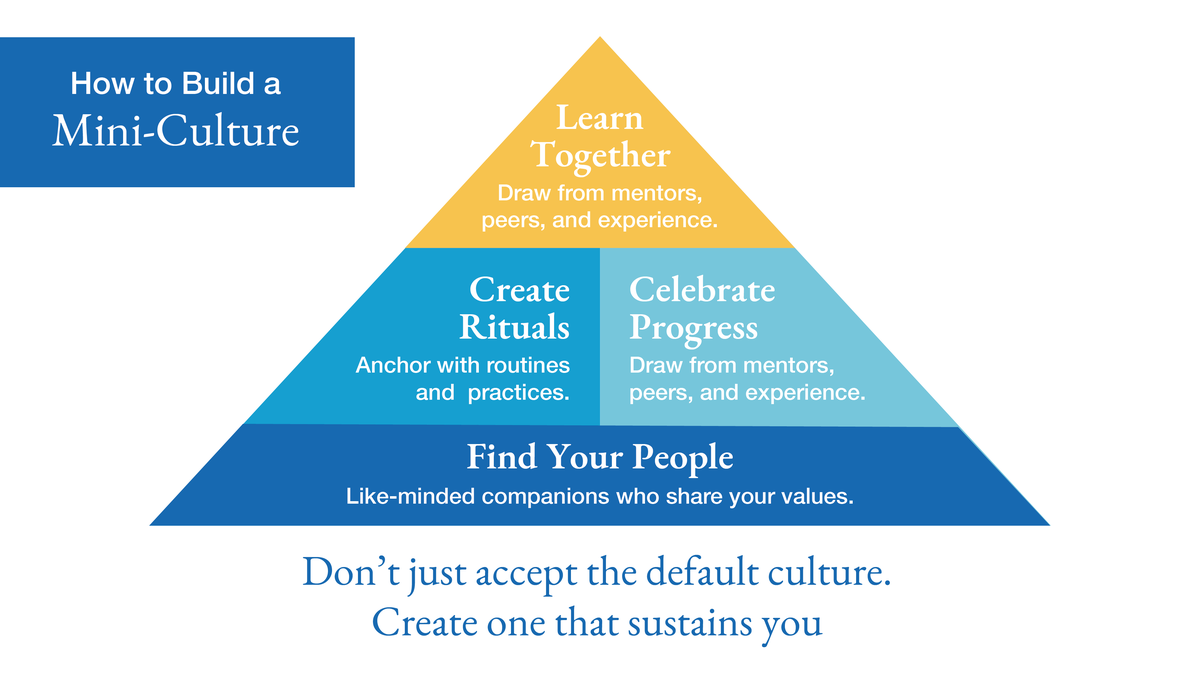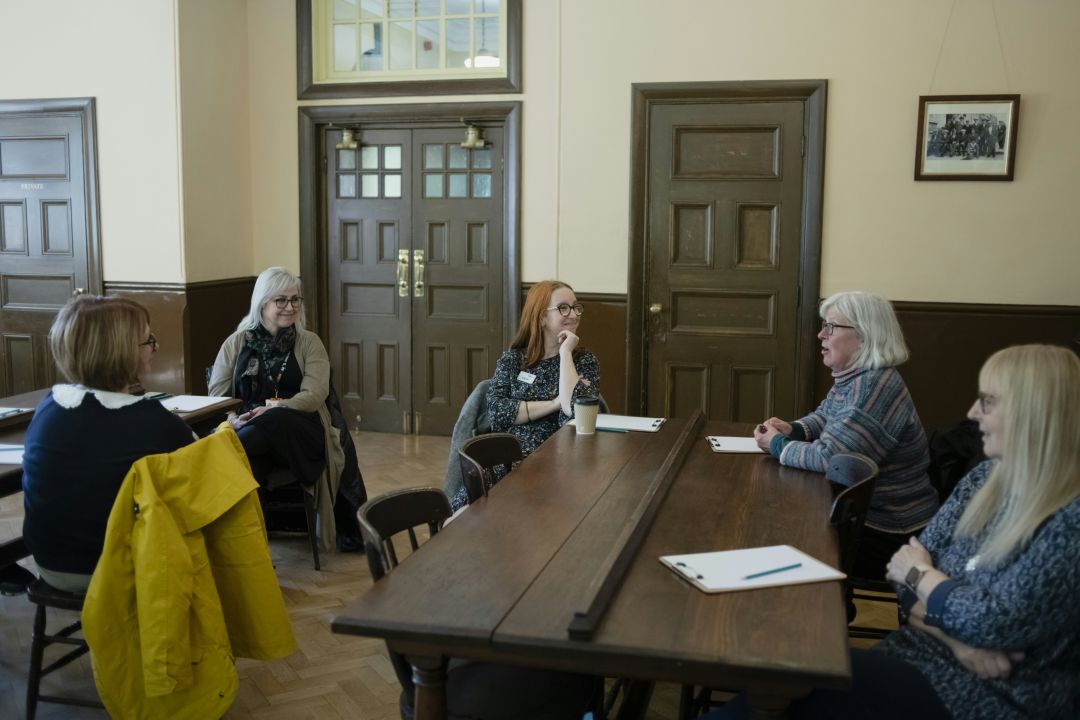Creating a Mini-Culture Can Reinforce the Best Parts of Yourself
Years ago, I read Mitch Albom’s Tuesdays with Morrie. The premise is simple yet profound: a series of weekly conversations between Albom, a former student, and his beloved professor Morrie Schwartz, who was dying of ALS (amyotrophic lateral sclerosis). Their discussions about life, love, and meaning became a cultural touchstone, reminding millions of readers of what truly matters.
One vignette from Morrie has stayed with me ever since. He said:
“The culture we have does not make people feel good about themselves. We’re teaching the wrong things. And you have to be strong enough to say if the culture doesn’t work, don’t buy it. Create your own. Most people can’t do it.”
That short statement hit me like a lightning bolt. If the culture around you doesn’t serve you, why keep buying into it? Why not create your own?
Over the years, I’ve turned this insight into a growth tool I call creating mini-cultures.
What Are Mini-Cultures?
A mini-culture is a deliberately crafted environment—a small ecosystem of shared values, interests, and routines that reinforce the kind of life you want to live. It might be as intimate as your family, as personal as a fitness group, or as collective as a circle of friends or a professional network.
What makes a mini-culture effective is that it provides structure, support, and motivation while shaping identity. When you share commitments with others, their presence and encouragement influence your behavior—often more powerfully than sheer willpower ever could.

Everyday Mini-Cultures
Mini-cultures can take many forms:
- Families who weave fitness into their identity—cheering each other on at 5Ks, turning weekend hikes into a ritual, and joking that “this family doesn’t sit still.”
- Couples who create a culture of gratitude—exchanging daily notes of appreciation and rereading them on anniversaries to remind themselves what they’ve built together.
- Parents who create a smartphone-free culture for their children—joining with like-minded families, fostering friendships among kids raised with the same values, and teaching children why they’re waiting, so it feels like belonging rather than deprivation.
- Writers who push past isolation—meeting weekly to share drafts, holding each other accountable through writing sprints, and celebrating completions with inside jokes or rituals.
Each example shows the same principle: behavior is easier to sustain when culture supports it.
Freedman’s Classroom Community
To see this in action on a larger scale, consider the world of writers. Few endeavors are more solitary, yet when supported by the right mini-culture, writing can flourish in extraordinary ways.
Samuel Freedman, a longtime Columbia professor, understood this. For 34 years he ran an intensive seminar in long-form nonfiction, designed to sharpen writing skills and launch future authors.
His genius was recognizing what a mini-culture could do for aspiring writers. He built a community that extended well beyond the classroom—encouraging alumni to stay connected, establishing a private Facebook group where they still share drafts, swap advice, and celebrate milestones.
Freedman himself has remained a steady presence with his alumni, reinforcing the idea that writers thrive together.
The results speak for themselves: in thirty-three of thirty-four classes since 1991, at least one student—and often several—landed book deals, totaling 112 contracts.
Freedman’s story is a reminder: when the right culture exists, success compounds.
Creating Your Own Mini-Culture
You don’t need to be an aspiring writer to experience the value and potency of a mini-culture. Any area of life can benefit from building one.
- Gather a few like-minded people.
- Set regular times to connect or practice together.
- Share progress and celebrate milestones.
- Seek out mentors or role models who can guide you.
The goal is simple: stop relying on willpower alone and instead build an environment that sustains you.
The Larger Lesson
Morrie’s insight remains timeless. Much of modern culture—from how we work to how we raise our kids—is built around values that don’t always foster health, joy, or meaning.
But we don’t have to accept those defaults. Each of us can create small, intentional cultures that align with what we value most.
In fact, in my next blog, I’ll show how this very practice can be applied to one of the most important health supports you could ever develop: creating a culture of fitness.
A Challenge for You
- Identify one area where the broader culture is pulling you in the wrong direction.
- Ask: What would a mini-culture look like that supported the opposite?
- Take one small step this week—recruit a friend, set up a group, or change your environment.
As Morrie said, “Most people can’t do it.” But you can—and when you do, you’ll discover how powerful even the smallest culture can be.



